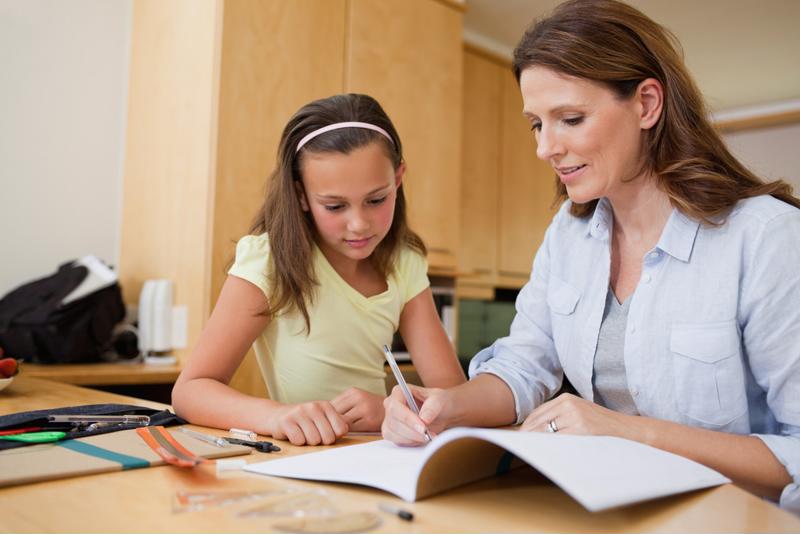There comes a time in many parents’ lives when they debate whether sending their kids to conventional school is a good idea. From avoiding systemic financial issues, violence and exposure to illness, there are many reasons to consider homeschooling. Here are a few to help you decide:
Benefits of homeschoolingÂ
If you’ve ever had a morning trying to get everyone’s lunches and homework together and send your kids out the door to the bus, you’ll love the idea of teaching them from home. It’s much easier to slow down the morning for a quality breakfast and some family time when your kids don’t have to rush around getting their stuff together for class. Another major plus is limiting their exposure to colds and flu bugs. Not having to ride the bus, use the drinking fountain or attend school with hundreds of other kids can be helpful, especially for children who don’t have the best immune systems.
When homeschooling, you can tend to your kids’ individual needs. This may mean providing a lot of hands-on projects to one child and giving lectures for another. You can cater to personal learning styles in a way regular teachers wouldn’t have the time and resources for. You can also focus on what is important to your family. That could look like making sure your kids get enough sleep by providing nap times during the day when they’re young, or even teaching them entirely outside so they gain an appreciation of the natural world. You will have to follow certain legal requirements such as teaching specific topics in preparation for standardized testing, so make sure you understand these needs before deciding to teach your kids at home.
“Will you homeschool or unschool?”
Do you want to classically teach your child, huddling around desks in a spare room of your home and teaching the same material your kids would learn in a traditional classroom? Or, are you trying to break away from this model to instead opt for unschooling, or teaching through untraditional methods? You get to decide to recreate regular school at home or go completely without curriculum to provide a totally unique education to your kids.
Another great benefit of homeschooling in any form is that you are the teacher. You already know a lot about your students and that can be a big help in identifying and studying topics they enjoy, as well as addressing occasional behavioral problems. You get to make the schedule, prepare lunch, give out grades and say when the day starts and ends. As they say, “With great power comes great responsibility.”
 Are you prepared to be the teacher when you homeschool your kids?
Are you prepared to be the teacher when you homeschool your kids?Downside of homeschooling
Taxpayer dollars and federal funding provide much of the needed materials and financial necessities for public schools. Homeschoolers, however, have to completely fund themselves. That means you’ll be the one buying textbooks, computer programs, computers, art supplies and physical education equipment. You’ll also have to provide your students with meals, so factor that cost into your daily finances as well.
Homeschoolers have to make an effort to gain new friends. Since they don’t just walk into class every day and interact with 25 or so potential new pals, this will require specific planning. Many homeschool kids still participate in mainstream after school activities like sports and clubs because it allows them to be a part of traditional education for long enough to spend time with their peers and gain friendships. Other homeschool families choose to form groups themselves to meet and discuss teaching and aspects of homeschooling while the kids can bond and play. Ask around to see if such groups exist in your area so you know what you’re getting yourself into before you take your kids out of mainstream schooling.
“Be prepared to discuss your homeschooling decision.”
If your family makes the decision to homeschool, you will have to be prepared to talk about that decision with loved ones and strangers. Everyone will have an opinion, and you have to know how to defend or explain your choice, or to walk away from the conversation. Many people simply don’t understand why families choose to homeschool, so you can provide information that might help others. Don’t always expect these conversations to end positively though. That doesn’t mean your choice is bad or that you should have acted differently.
Children who have been homeschooled may decide one day that they don’t want to be anymore. They may wake up in fifth grade and announce they’d like to mainstream. Parents must help decide if this is the right step. Some homeschoolers have trouble adjusting to traditional education for college and could benefit from attending at least a handful of classes at the local high school.
Consider all these facts and do your own research when looking into homeschooling your kids. You can always try out one education form or the other and then revert to your original choice if it’s not the right fit.
